Let's discuss The Last of Us episode five
The story continues.
Last week, I said that episode four of The Last of Us was clearly setting the stage for something bigger, and, oh boy, was I right.
As with previous episodes, episode five (known as Endure and Survive) is brilliantly acted by all involved. The show continues to blur the line between good and bad: if you do bad things for a good reason, does that make you a bad person? Or does it all depend on whose lens you see a story through?
This episode sees a definite pick up in action and momentum for Joel and Ellie's story, and as always leaves plenty of things for us to pick apart and discuss. Let's get into it.
THIS ARTICLE CONTAINS SPOILERS FOR BOTH THE SHOW AND THE GAME SERIES IT IS BASED ON. ADDITIONALLY, THERE ARE DISCUSSIONS OF SUICIDE BELOW. PLEASE READ ON AT YOUR OWN DISCRETION.
While episode five stays largely faithful to the game's story, there are a few notable differences I would like to jump straight into, particularly Henry and Sam's backstory.
In the game, the brothers are trying to make it out of Pittsburgh alive while being chased down by the city's merciless hunters. Save for some mentions of other members from their original group, that is really about as deep as their backstory goes.
In the show, however, we spend some quality time with Henry and his younger brother Sam (played by Lamar Johnson and Keivonn Woodard respectively) before their eventual meeting and alliance with Joel and Ellie.
In the episode's opening scenes, we learn that Henry is wanted by the Kansas City revolutionaries (namely Kathleen) because he gave inforamtion about the rebellion to FEDRA. He became what the revolutionaries call a "rat" or a "collaborator". The reason he did this, it transpires, was to help his younger brother.
Prior to FEDRA's demise in the city, Sam was diagnosed with leukaemia, and FEDRA had the necessary drugs to help him. This meant Henry was forced to make a choice: work with FEDRA for the medicine, or let his brother suffer. As I already said, the show is steadily blurring the lines about what makes a person good or bad - although Henry feels he knows where he sits on the morality scale.
"The answer is easy: I am the bad guy, because I did a bad guy thing," Henry tells Joel during a quiet moment of the episode.
Those who know the game will appreciate this comment acts as a deft bit of foreshadowing for things to come further down the line.
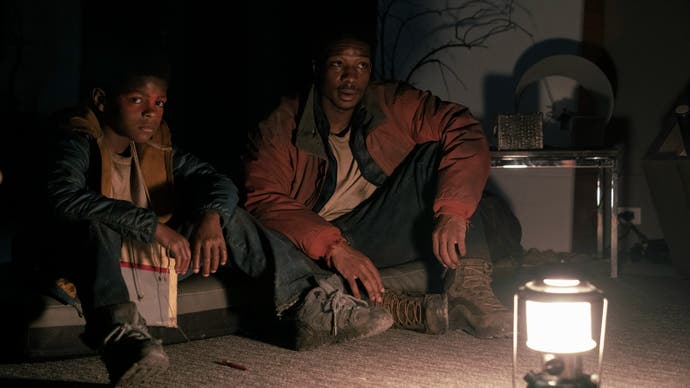
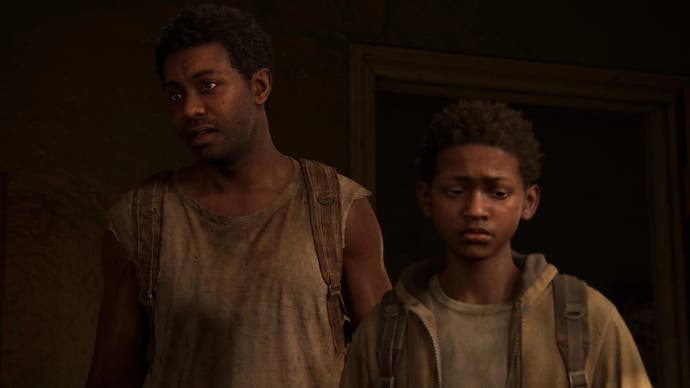
Another significant change is that Sam in the show is considerably younger than his game counterpart, and he is deaf. This means Sam is not only reliant on his older brother for medication, but also for his understanding of others in the world around him.
Henry communicates with Sam via sign language throughout the episode, and others speak to Sam via Henry. While I should say I enjoyed this episode very much, sometimes I found other characters' presence around Sam a little frustrating. The doctor from episode four shows up in this episode as well, and I very much felt that he was only ever communicating with Sam through Henry, rather than directly with him.
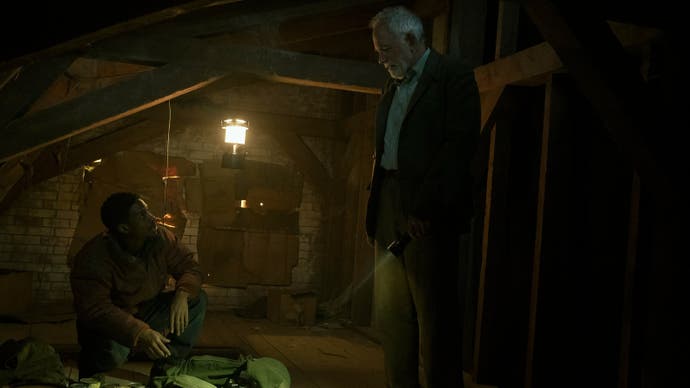
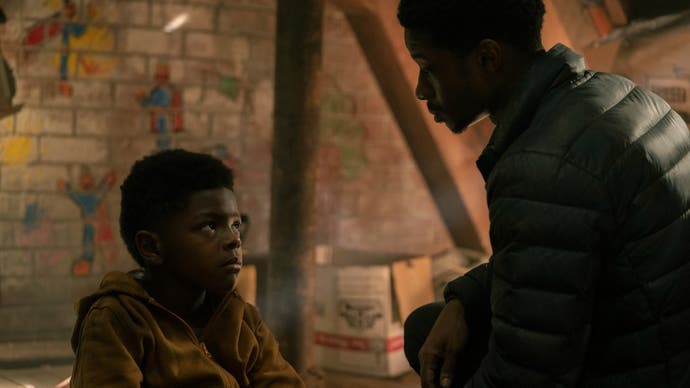
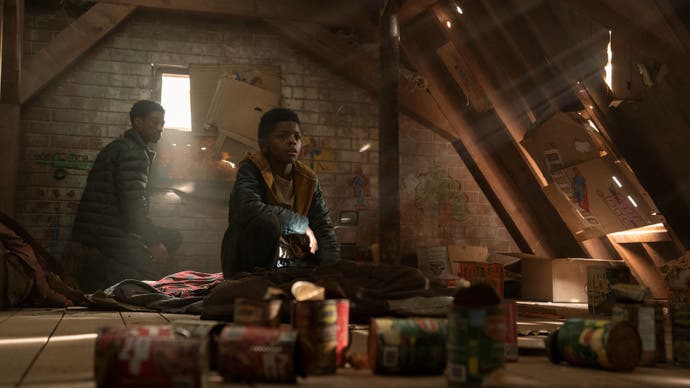
This trend is wonderfully bucked by Ellie, however. While Ellie does not understand or use sign language herself, she engages with Sam throughout the episode without Henry's help, be it by the two children writing notes to each other or thanks to a wonderful expressions and energy.
The two younger members of the group form a really beautiful bond with each other throughout this episode, sharing an infectious enthusiasm for comics (the same comics players can find in the game) and playing football and such together. These moments echo similar game moments, and this joyful innocence makes the episode's ultimate conclusion even more heartbreaking.
Bella Ramsey and Keivonn Woodard bring a real warmth and humanity to their characters here, and deserve praise for ensuring viewers both invest in and believe in their relationship in a relatively short amount of time.
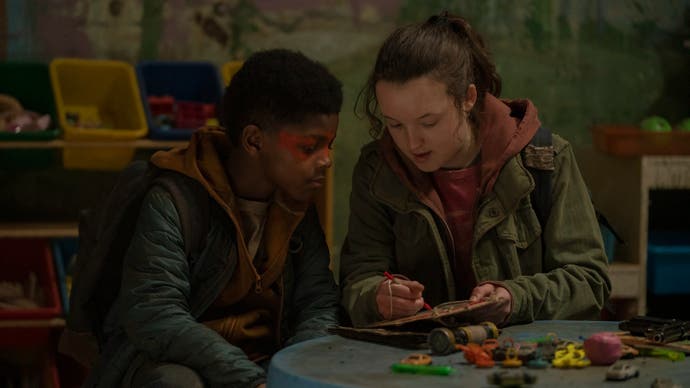
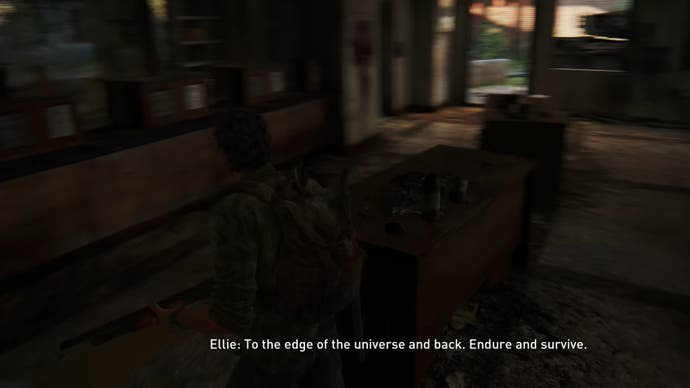
Another change from the game is the continuing story of the Kansas City revolutionaries, along with leader Kathleen and her right hand man Perry.
Again, Melanie Lynskey does a nice job of portraying a character who, at first glance, seems almost meek. However, she clearly has a ruthlessness within her. Her motivations are revealed further in this episode, when she returns to her childhood home and shares that her brother was the former leader of the revolutionary movement in Kansas City, and the very person Henry handed over to FEDRA for his own brother's medication.
Kathleen's story mirrors many of the actions of our 'heroes' and, again, this makes us question who really is 'good' and 'bad' in any given situation. Perspective can really make all the difference on how we perceive a character.
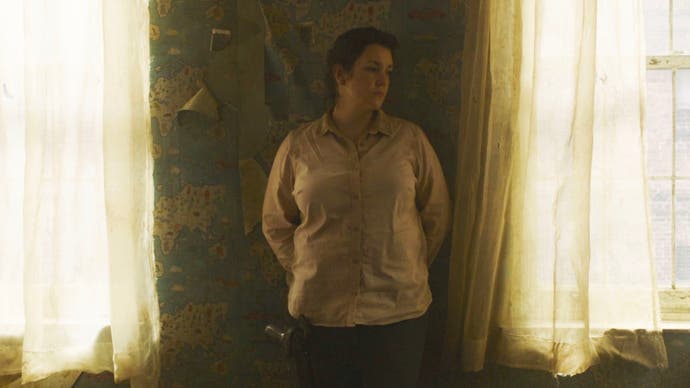
I love the contrast between Kathleen and Jeffery Pierce's Perry in this episode. Perry may visually look the more commanding of the two, with his body armour and array of weapons clearly on show - he looks like a soldier. Kathleen, in comparison, looks almost dowdy, with a lone pistol and simple anorak.
But despite their respective 'book covers', Kathleen is very much the one in charge. When Perry questions if finding Henry right away is the best use of their time, Kathleen affirms that it is, and Perry relents. Kathleen will easily put Perry into place if he steps out of line.
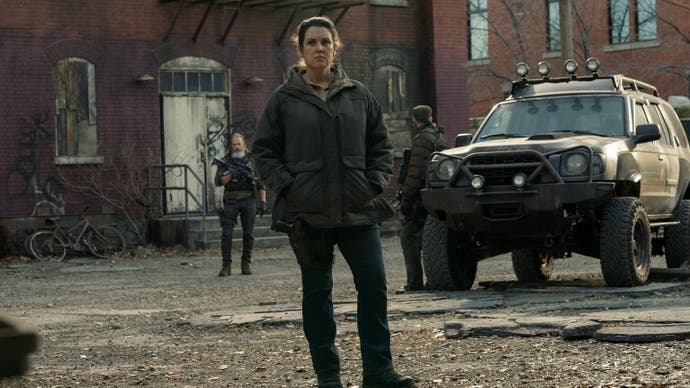
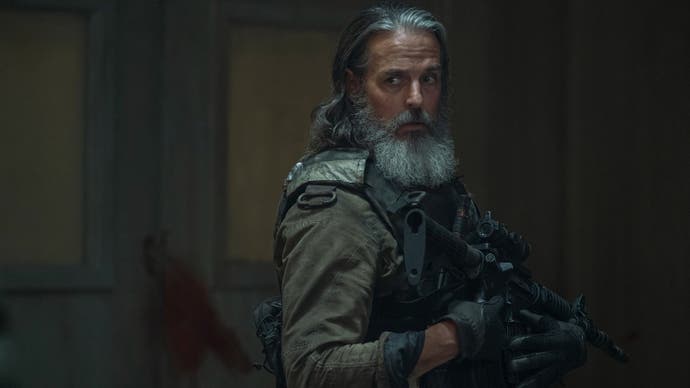
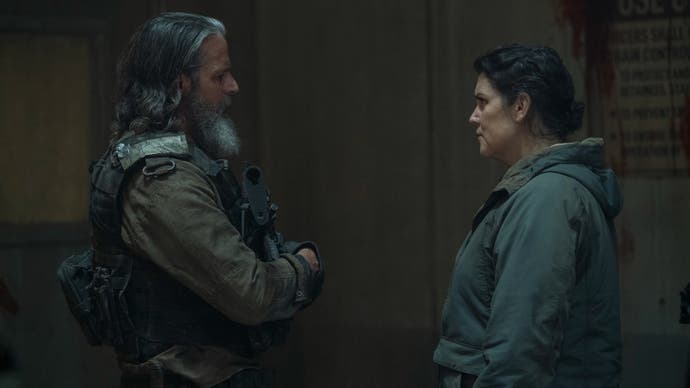
As I said, despite these notable changes above, the show does follow a very similar structure to the Pittsburgh section of the game. Joel, Henry, Ellie and Sam all flee from those hunting them by going through tunnels under the city.
In a nice nod to the game, the group comes across the remains of an underground community hidden within these tunnels. "I'd heard about places like this," Joel tells Ellie. "People went underground after outbreak day and built settlements."
In the game, players can come across a series of notes that reveal the tragic story of one such underground community, run by a former fisherman named Ish.
Sadly, despite their community thriving for a while, the infected eventually penetrated this underground commune, leaving Ish and his fellow survivors dead for some time before Joel and Ellie arrive on the scene. This whole story can be easily missed, as it is all told through optional collectibles, but it is one that further expands on the world of The Last of Us.
Personally, I wish the show had expanded on this story a little more, as I loved finding those notes in the game. However, I am still thrilled the showrunners included it at all.
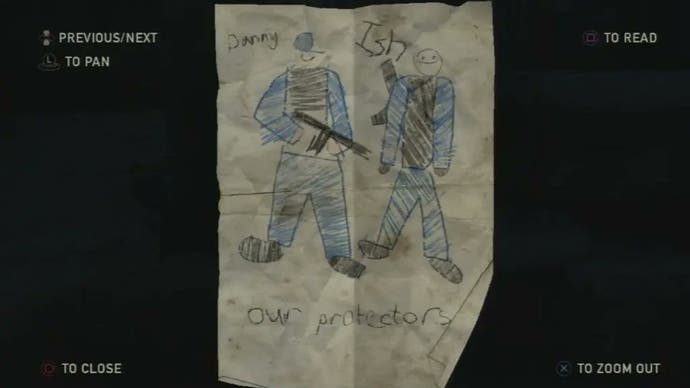
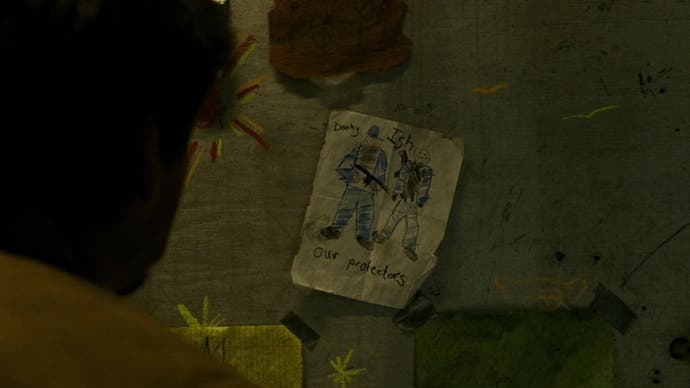
Back to the show. When Joel, Henry, Ellie and Sam all make it out of the underground tunnels, they pop up in the suburbs of Kansas City, much like they make it to the Pittsburgh suburbs in the game.
The next few scenes are a brilliant recreation of this same point in the game, albeit at a different time of day. As the four make their way through the seemingly abandoned streets, they are soon shot at by a sniper stationed in one of the houses down the way. Joel, leaving the group, manages to sneak around and confront the sniper at his vantage point, as he does in the game.
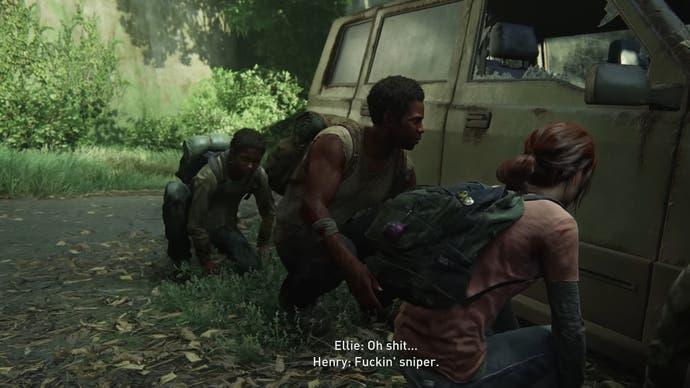
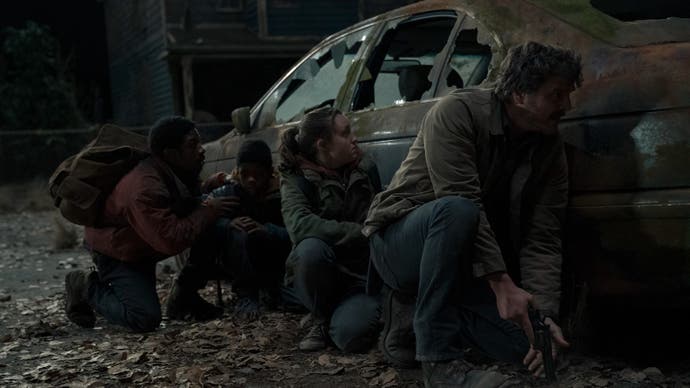
The show delivers us with another morality pang here, as the Kansas City sniper turns out to be an elderly gentleman and at first Joel does not want to kill him. In fact, he tries to give the sniper (later revealed to be called Anthony) a chance to surrender. However, Anthony turns on Joel, resulting in Joel reluctantly killing him. Joel then takes control of the sniper's weapon as chaos lets loose on the streets below.
And what chaos, I hear you ask. Well, chaos that is both incredible and terrifying, as Kathleen, Perry and their militia soon arrive on the scene, still hell-bent on bringing Henry to justice.
As in the game, Joel shoots several members of the revolutionary group as they descend on Ellie, Henry and Sam. This results in one truck colliding with a nearby building and the subsequent fuel leak setting the scene ablaze.
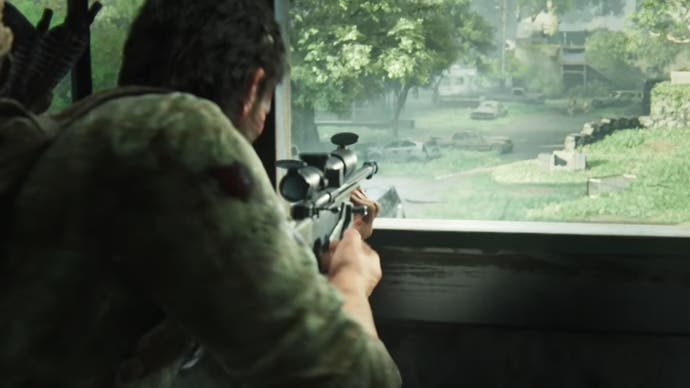
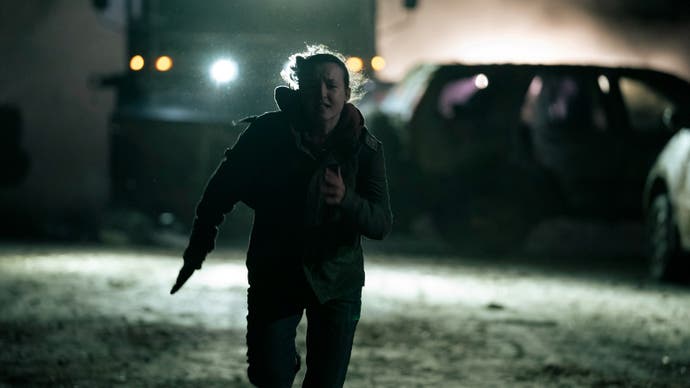
As the group acknowledges the flaming mess, Kathleen addresses Henry and asks him to show himself.
Much like with Henry's comment earlier, Kathleen proceeds to deliver a speech that foreshadows Joel's actions further down the line: "I know why you did what you did," Kathleen calls out to Henry. "But did you ever stop to think maybe he was supposed to die?"
"Kids die, Henry. They die all the time. You think the whole world revolves around [Sam]. That he's worth everything. This is what happens when you fuck with fate."
As Henry attempts to give himself up, giving Sam and Ellie a chance to make a run for it, things take a turn for the worse with the arrival of something even more sinister than Kathleen and her men: the infected.
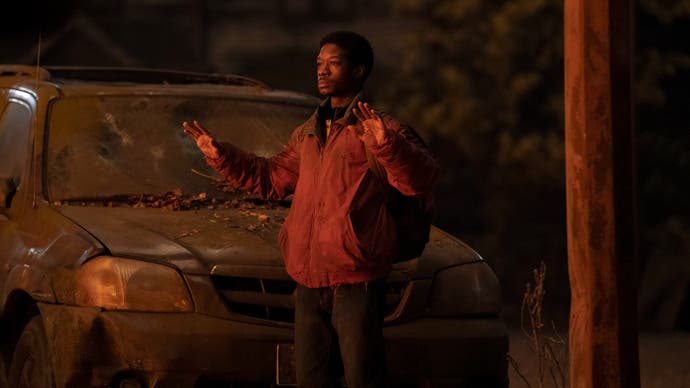
The infected have generally been a rather unseen threat in the show so far, though we have been aware of their presence. We saw how the Clickers could sense their prey in the Boston museum and we saw how they could swarm a building when alerted to a person's presence at the end of episode two. However, we had yet to see a proper confrontation between a group of survivors and a group of infected.
Episode five changes this in a truly terrifying moment. When a truck breaks through the suburbs' ground, a swarm of infected bursts out and begins to overwhelm the survivors already engaged in conflict with each other. By swarm, I really do mean swarm. This moment reminded me of spiders erupting from a nest a la Uncharted 3, or those beetles that get under your skin in The Mummy films.
It also introduces viewers to The Last of Us' Bloater enemy. In-game, this enemy makes its debut in Lincoln, however the show decided to forgo this reveal at the same point in favour of retelling of Bill and Frank's story in episode three.
The Bloater's reveal at this point in the show, however, was brilliantly done. As faster moving infected overwhelm the revolutionaries, the Bloater's imposing form slowly emerges from the ground, before it begins to slam people into the ground in one simple motion. It then charges down Perry and rips his head clean from his body. It was quite the end for the steadfast soldier, who urged Kathleen to run as he did his utmost to shoot down the much harder to kill Bloater.
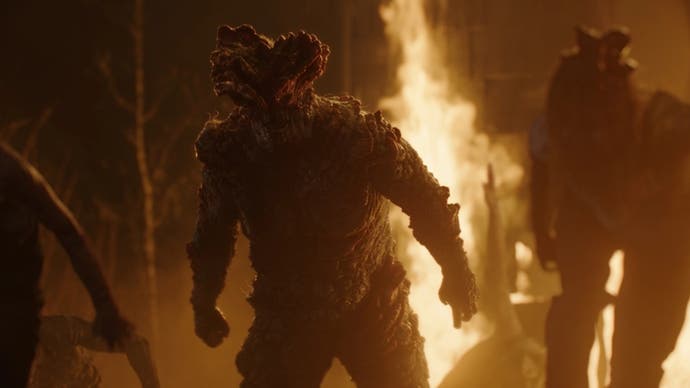
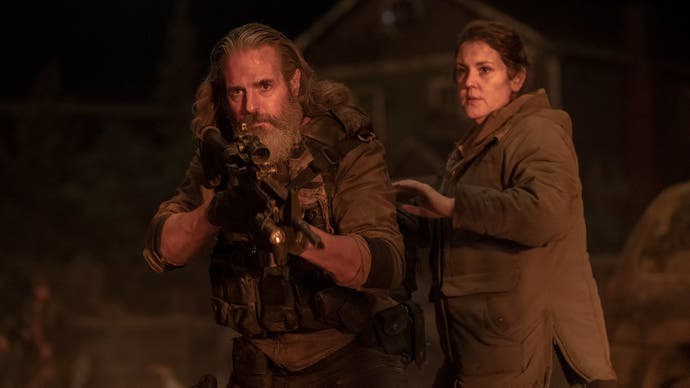
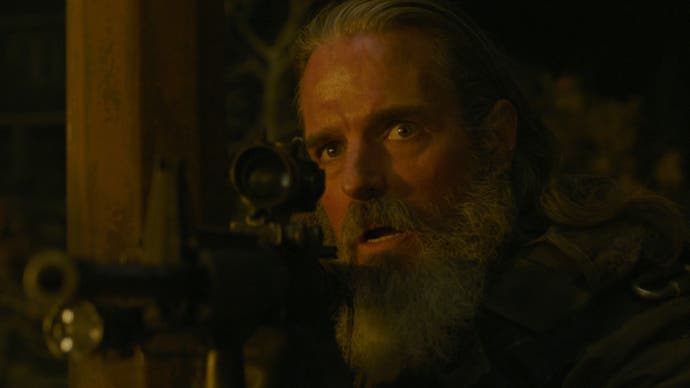
While all of this is going on, Joel is doing what he can to protect Ellie from both the Kansas City group and the infected with the sniper rifle.
Ellie, in turn, has fled the chaos and sought refuge in a now-abandoned truck. However, she too comes under attack from a young infected child that crawls around the back of the car in a jarringly disconnected way. It is like something from The Ring or The Grudge.
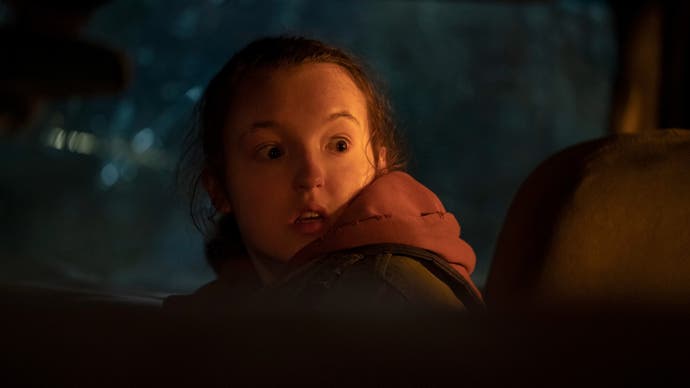
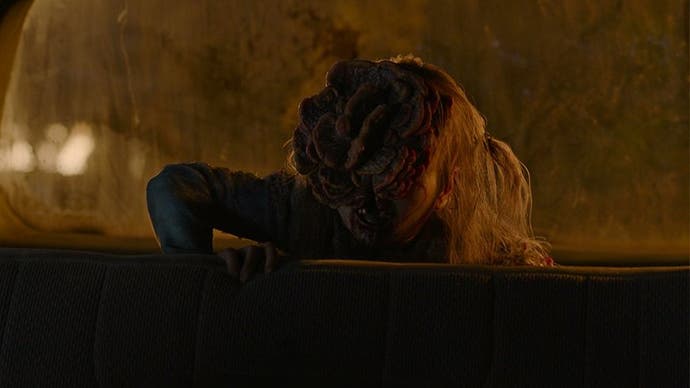
As Ellie escapes from this infected by shutting it in the car, she sees Henry and Sam being attacked by even more infected (and loads of them, adding to the urgency of this scene). Ellie seeks to save her friends, and under Joel's covering fire runs to the brothers and stabs those attacking them.
The three begin to flee, only to be stopped by Kathleen - though in a small twist the infected child that so nearly overcame Ellie in the car actually saves her life here, springing onto Kathleen and tearing into her body as Ellie, Sam and Henry watch on. Joel then finally rejoins his group, and the reunited four flee into the woods as the battle between the revolutionaries and the infected rages on.
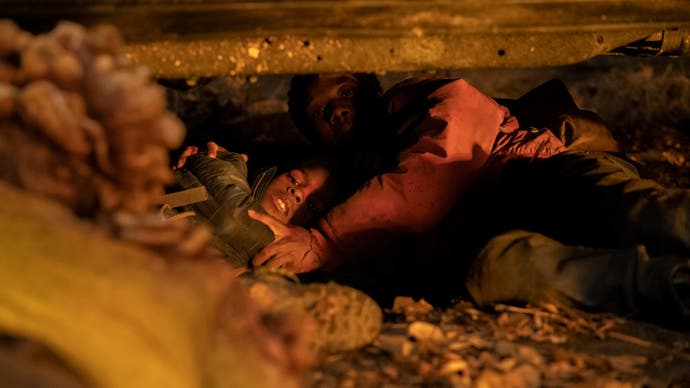
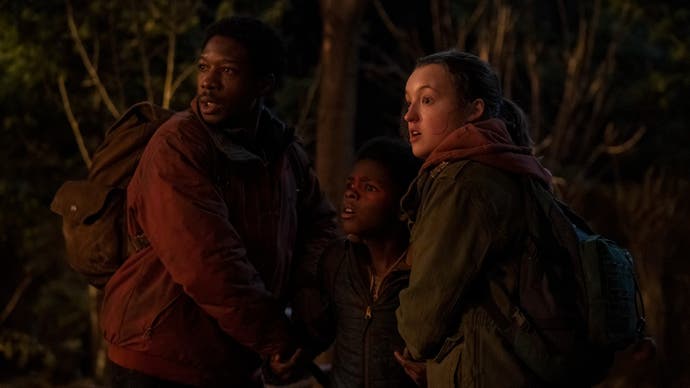
After the hair-raising scenes of the suburbs, things now take a quietly devastating turn. The four have found refuge away from Kansas City and its hunters, but despite being free from these horrors there are still more to come.
As the two children are spending time together in a separate room to Joel and Henry, Sam asks Ellie if she is ever scared. As in the game, Ellie reveals she is scared of scorpions and ending up alone. In the show, Sam then reveals to Ellie that he has been bitten and is infected. This is different from the game, where Sam expresses his fears to Ellie but does not reveal his bite.
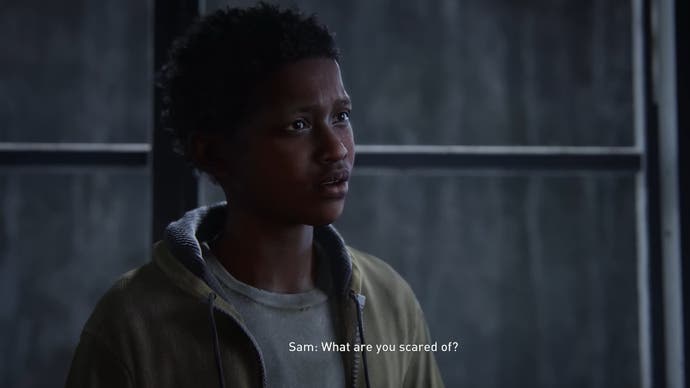
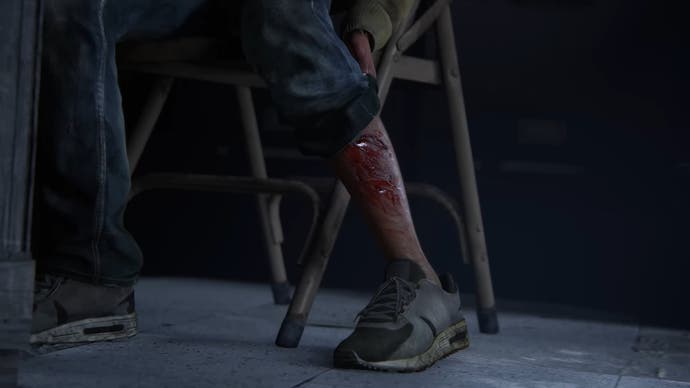
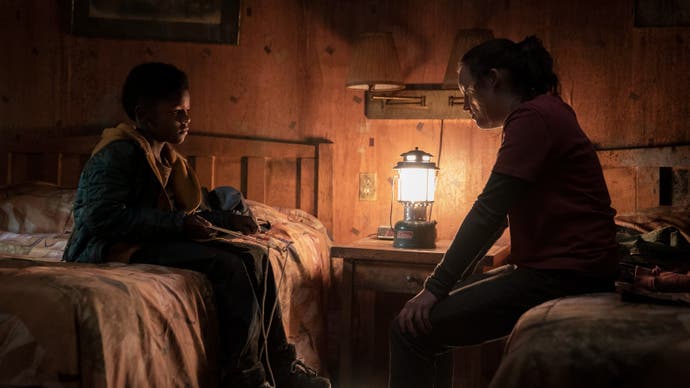
In the show, Ellie comforts Sam and shows him her bite marks, revealing that she is immune. She then tries to save him by rubbing her blood over his wound, before saying she will stay awake with him.
Unfortunately, despite her efforts, Sam turns, and the following morning proceeds to attack Ellie just as he does in the game. As the two children tumble out of their room, Joel tries to help Ellie, but Henry shoots the floor in front of him. Henry then turns the gun on his little brother and shoots him in the head, killing him.
As blood flows from Sam's now lifeless body, tears silently fall down Ellie's face as Joel tries to check she is ok. A shocked Henry, realising he has just killed the one person he made it his mission to protect, then shoots himself in the head as Ellie cries out. This moment is as emotionally overwhelming in the show as it is in the game.
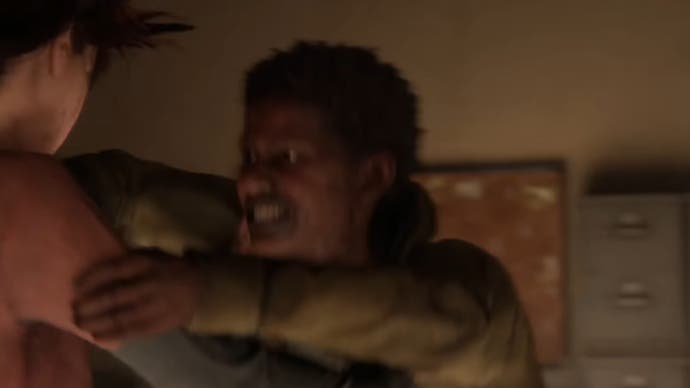
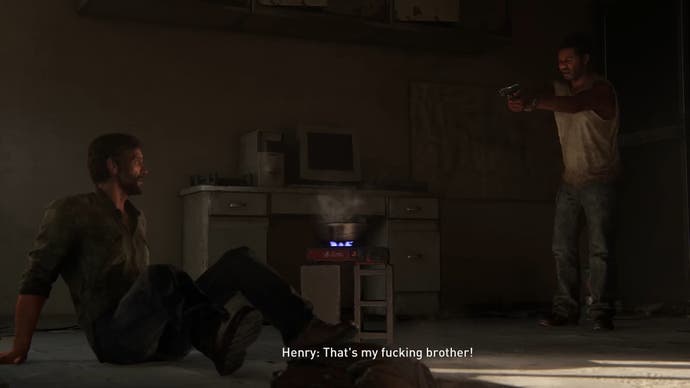
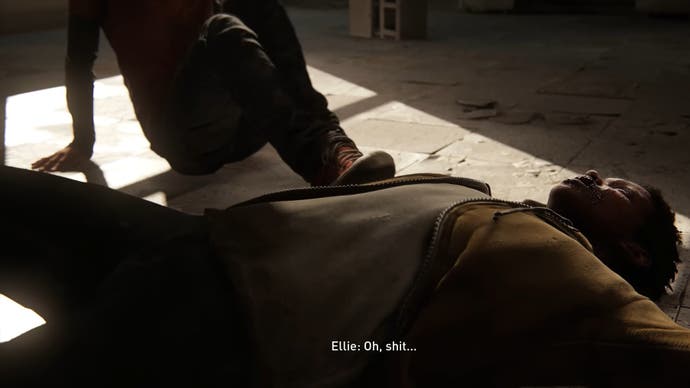
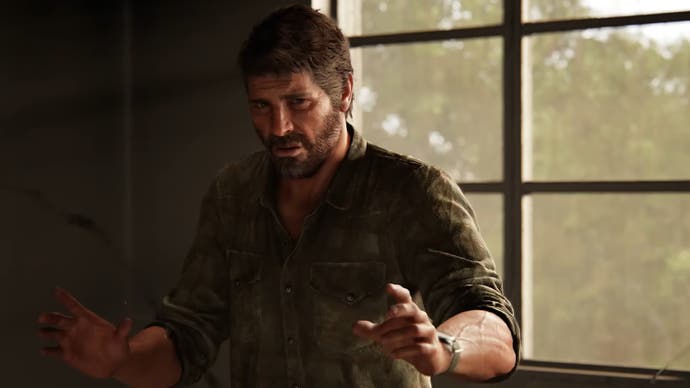
Unlike in the game, we see Ellie and Joel in the moments soon after this incredibly traumatic incident. Joel is shown burying the brothers, as Ellie leaves an apology note on Sam's grave. She then heads west, and calls for Joel to follow her.
It is truly heartbreaking, and for the fourth time this series I ended the episode in floods of tears. There were moments in episode five where both viewers and the characters themselves were given the chance to feel hope. Sadly, however, these brief moments of hope further emphasise the devastation - and desperation - of The Last of Us' world.
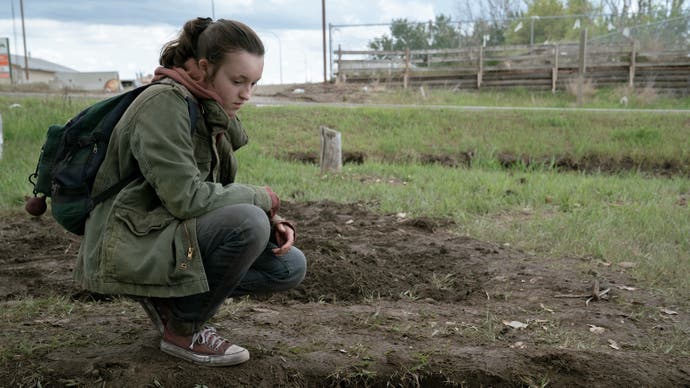
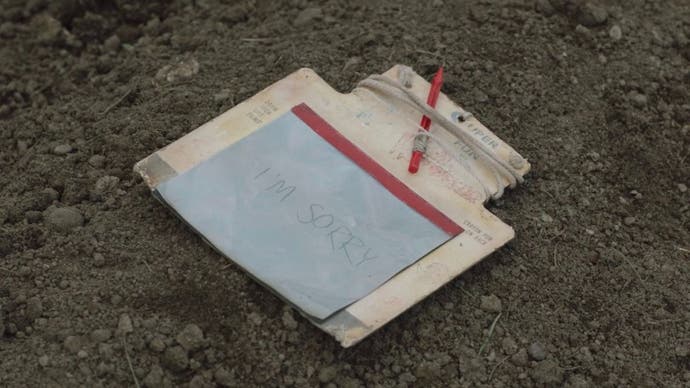
As always, a few more honourable mentions from this episode.
First off, I loved this cinematography parallel of Sam's face paint and the reflection as Henry looks out at Kansas City:
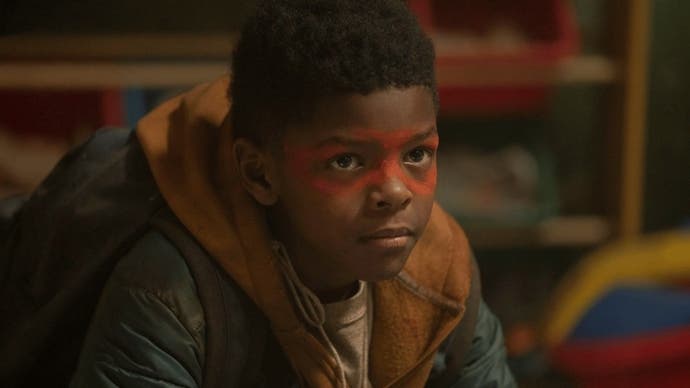
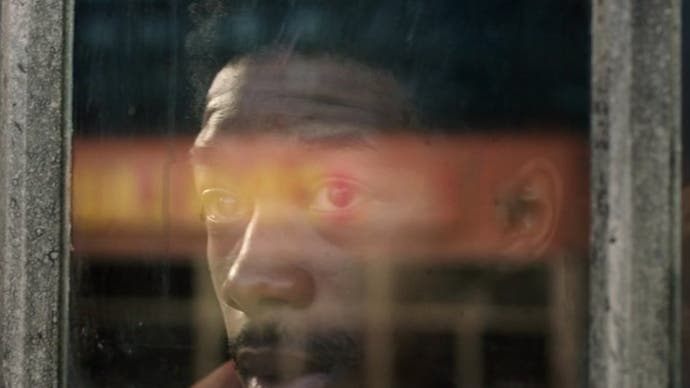
Secondly, when Henry makes an offhand comment about Joel being Ellie's father, I appreciated how swiftly both parties rebutted his assumption. However, despite Joel not being Ellie's father, Henry tells Joel he knows he was once someone's.
-scaled.jpg?width=690&quality=75&format=jpg&auto=webp)
Thirdly, props to the show's prosthetic team. The infected are brilliantly brought to life on the screen thanks to what I am sure is a lot of hard work behind the scenes.
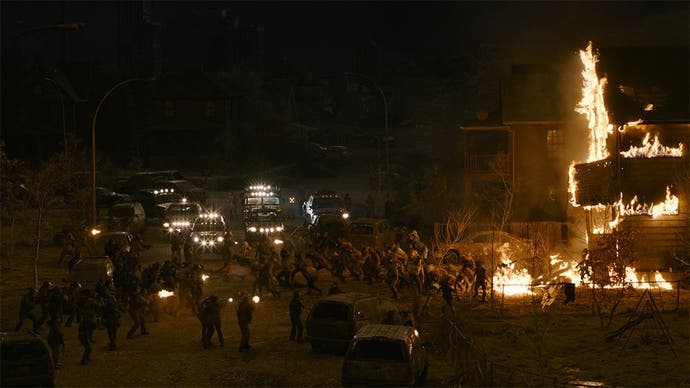
Last but not least, still no Ellie on a pallet. I was sure we would see Joel and Ellie in water at some point during this episode given the Pittsburgh river scene. However, it's still all dry on that front.
But as I said last week, perhaps next week... See you then!
-header.jpg?width=690&quality=75&format=jpg&auto=webp)

